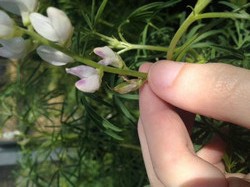Health foods against diabetes
Over 6 % of the world’s adult population suffers from diabetes and the numbers are increasing. Diabetes incidence among younger people is alarming and has been attributed to lifestyle and nutrition choices. There is an urgent need to discover novel preventative interventions and treatments against the diabetes epidemic. Approaches that modulate the ways in which the brain controls satiety, body weight and composition are also needed. With this in mind, scientists on the EU-funded LUPIN-CHALLENGE (Characterization of lupin b-conglutin seed proteins with a focus on health benefits and their role in allergenicity) project proposed to exploit the health promoting aspects of Lupinus angustifolius. NLL exhibits multiple benefits as a health food due to its high protein and dietary fibre content. It has the potential to reduce blood pressure and the risk of cardiovascular disease. In addition, its anti-diabetic activity mimics that of metformin, the first drug against type 2 diabetes. However, seed proteins from the lupin species can potentially contribute to food allergy. Scientists set out to identify the molecular determinants of these effects. They generated lupin plants mutant for each individual b-conglutin gene and discovered an important interaction between specific b-conglutin proteins and human insulin. Conglutin proteins activated the insulin-signalling pathway, and exhibited beneficial effects through up-regulation of specific genes. This observation is of vital importance for the prevention and treatment of diabetes. Feeding experiments in mice verified the allergenic potential of b-conglutins and led to the identification of a number of new immune-reactive polypeptides. They further discovered the B- and T-cell epitopes that may be responsible for the common and differential reactivity of conglutins. Undoubtedly, the findings of the LUPIN-CHALLENGE project offer significant advancement in our understanding of the medical benefits of NLL seed proteins. The generated knowledge could lead to the development of scientifically proven food, enriched with specific NLL ingredients.







